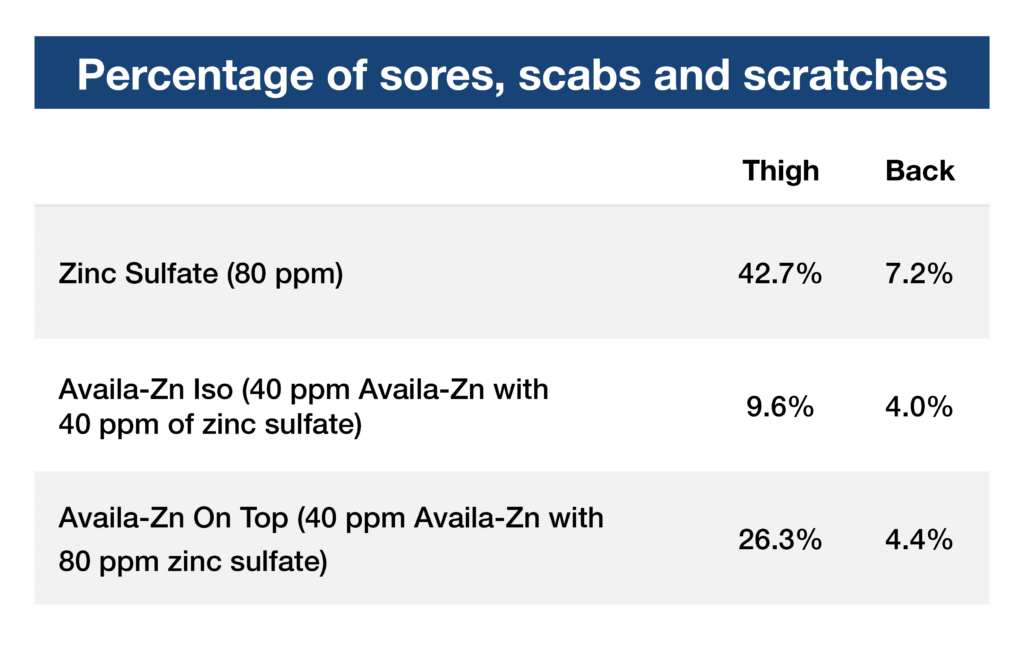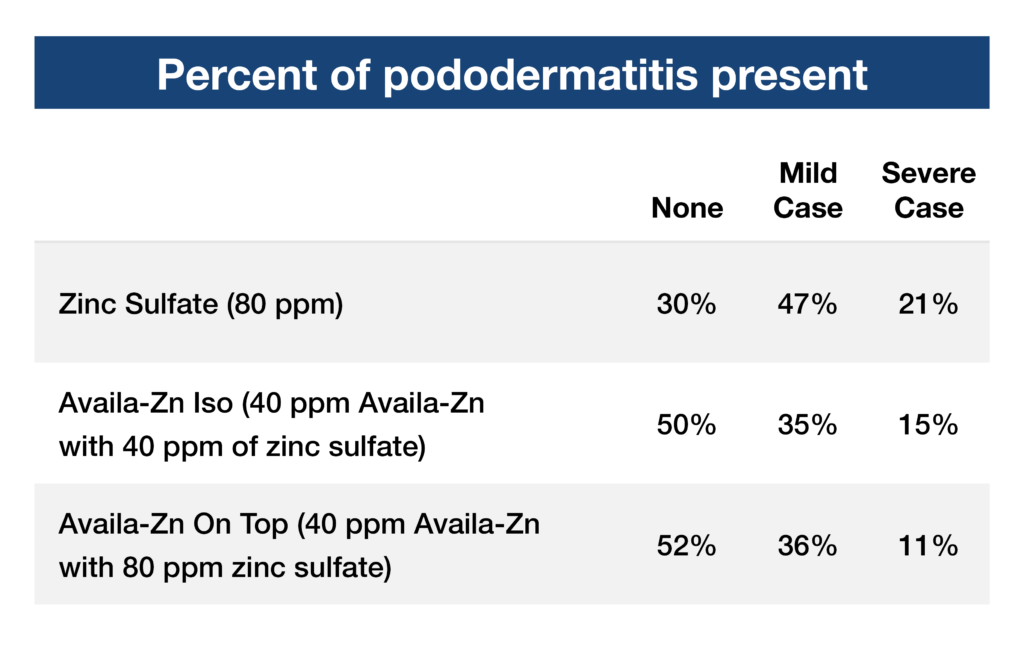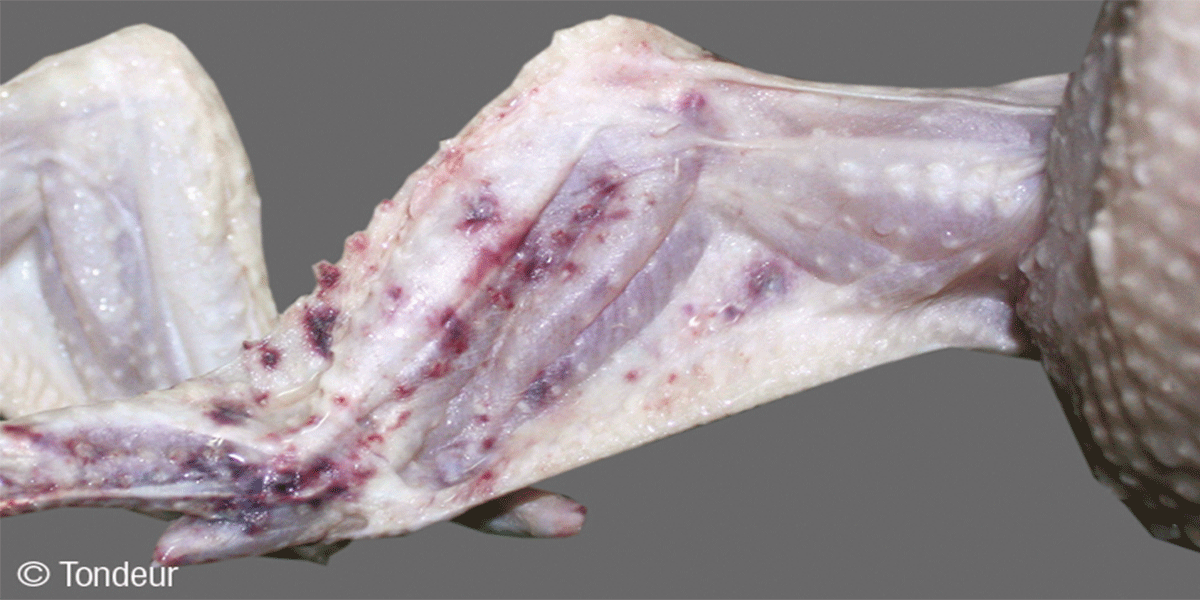Across the globe, poultry carcass defects and condemnation — bruises, blood splash, breast blisters and red wing tips — are costing the broiler industry billions of dollars in economic losses, and the problem is growing annually. There are many causes for carcass defects and condemnation, but Cellulitis — a disease resulting from either scratched skin or intestinal translocation of specific strains of Escherichia coli (E. coli) — is considered the second most significant condemnation cause in processing plants in the United States that afflict poultry.
From an animal wellness and commercial perspective, maintaining skin integrity is a critical means to help prevent scratches, infection and potential carcass condemnation. The skin and in general epithelial tissues, function as a protective armor against physical aggression like scratches produced in skin in the production environment and during processing in the slaughter plant. Skin is the largest single structure in the regulation of body temperature and is the first line of defense against many pathogens.
Epithelial tissue covers all exterior and interior surfaces of the body: its cavities, tubes, organs and blood vessels, including the respiratory, reproductive, urogenital and gastrointestinal (GI) tracts. The epithelial tissue or skin consists of two layers: the epidermis (the barrier layer) and the dermis (the support and supply layer that contains large amounts of small blood vessels). The skin also has several receptors to sense heat, cold, pressure and pain; it also stores water, minerals and vitamins.
A characteristic of all birds is that feathers, produced by the epidermis, cover the largest part of the body. These feathers protect the skin or epithelial tissue against the environment’s physical, chemical and biological impacts, but feathers also allow the bird’s skin to be very thin and loose, which makes it vulnerable and easy to damage.
Zinc helps mitigate cellulitis in poultry
To help improve skin integrity, nutritionists and broiler growers are incorporating the zinc from Availa® Zn into the poultry diet to help strengthen the skin and its barrier function. This also helps support the skin’s overall immune function. Zinc is known to influence skin strength, elasticity, inflammatory response and healing.
Feeding zinc from Zinpro Performance Minerals® has been shown to heighten immunity and reduce the incidence of Cellulitis alone or in combination with vitamin E. In a broiler study at Auburn University, skin lesions (sores, scabs and scratches) decreased from 42.7 percent to 9.6 percent when birds were fed zinc from Zinpro Performance Minerals. This demonstrates that the inclusion of zinc in poultry diets helps to strengthen poultry skin integrity, leading to fewer carcass defects.
Another research study evaluated the effect of Availa-Zn on skin integrity in broilers at 49 days of age. The research showed how Availa-Zn reduced the percentage of sores, scabs and scratches on the thigh and back by improving overall skin integrity.

Zinc also proved to be effective in reducing the incidence and severity of pododermatitis in broilers.

These trials demonstrate that providing sufficient levels of metabolically available performance trace minerals plays an important role in developing strong and healthy skin to support a robust immune response.
Management strategies in poultry
Management plays a significant role in the prevention of scratches and cellulitis. Scratches result from bird-to-bird contact. This contact can be due to lack of feed or space available to consume the feed, as these situations induce the birds to compete for space in the feeder. Other times, scratches are caused by material or equipment left inside the broiler house. Since skin scratches can’t occur without contact, the easiest way to reduce scratches is to reduce stocking density at the farm. Gentle management and avoiding upsetting the flock is very helpful.
In healthy animals, old scratches are easier to address; the skin can recover better with balanced nutrition that incorporates performance trace minerals including the trace mineral zinc. New scratches that occur at catching, especially in small birds, are more problematic because they tend to occur in areas not covered with feathers and the skin may not have time to heal before processing.
The other key factors to consider include ensuring bird health and reducing farm contamination to make sure specific E. coli strains are not present on the farm.
Manage cellulitis in poultry with Zinpro
The skin is often the most neglected and ignored portion of the bird’s immune system, and this is costing the broiler industry billions of dollars annually. By incorporating zinc from Zinpro Performance Minerals into the poultry diet, poultry producers can enhance skin integrity and reduce the incidence of scratches that can lead to Cellulitis. This in turn helps reduce carcass defects and condemnation.
Download the Poultry Skin: Barrier and Healing research summary for more information about how supplementing poultry diets with Availa-Zn can help improve skin integrity and reduce carcass defects and condemnation, or contact a Zinpro representative today.

